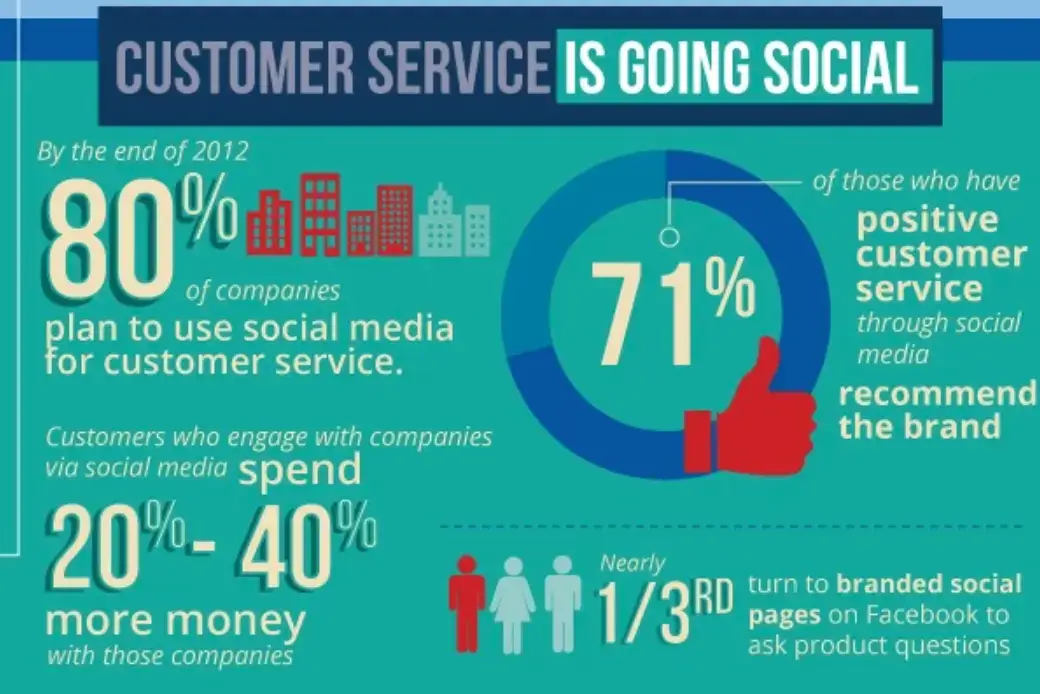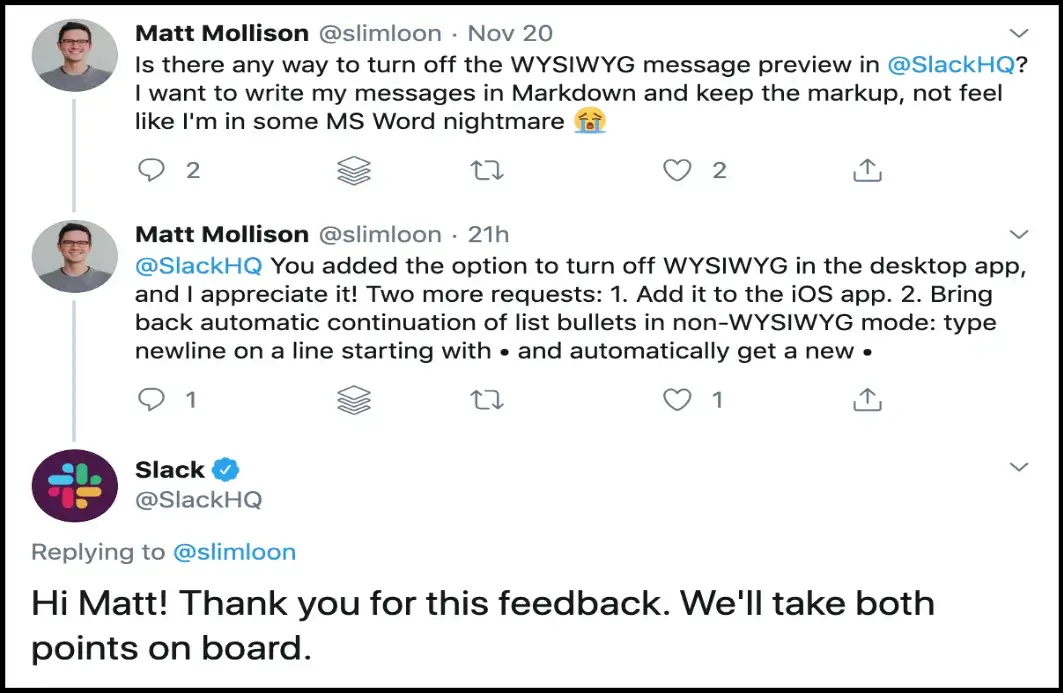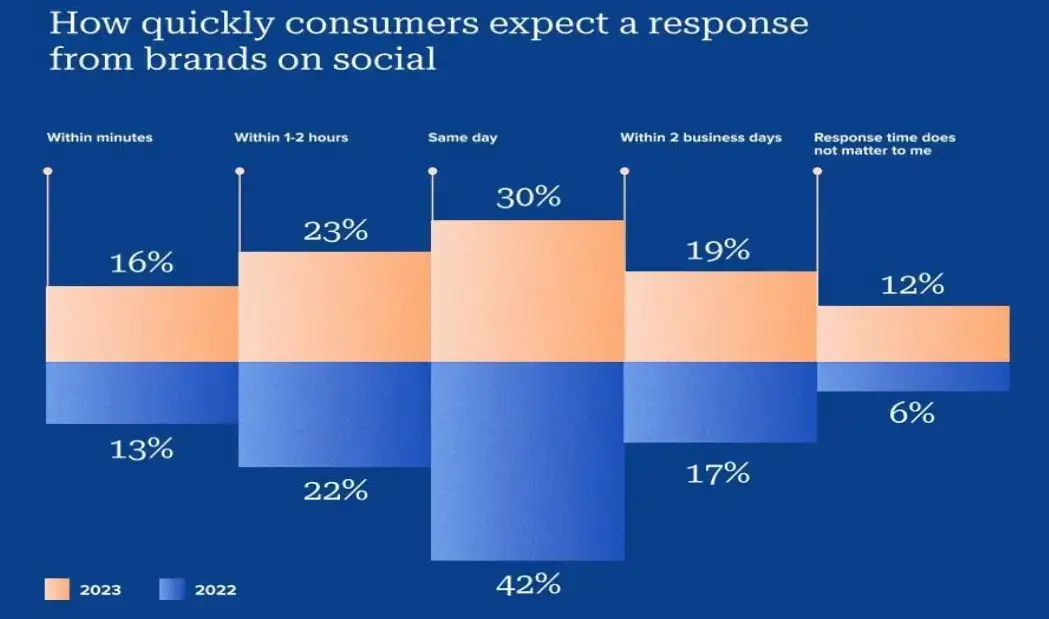If you own a business, it's important to care about how customers, the public, and competitors perceive it. Your brand reputation depends on these stakeholders' beliefs, opinions, and knowledge, especially the public's.
The public usually talks about your business, and what they say when you're not in the room is what forms your brand reputation, as Jeff Bezos said.
Shortcuts:
- Monitoring Your Brand Mentions
- Competitor Mentions and Keywords
- Creating Positive Content
- Engaging with Followers
- Manage Conflicts Responsibly
- Using Customer Feedback

Social media platforms such as X (formerly Twitter) and Instagram allow the public and customers to talk about your business.
They offer great platforms for tailoring the business into a reputable brand. These platforms also allow you to interact with stakeholders and manage your reputation.
You'll need strategies to manage your brand reputation on social media platforms.
Read on as we unravel the strategies that could help your business maintain its reputation and improve it.
Why is Social Media Reputation Management Essential?
Since many people converge on the online space to observe your business activities and mention your brand, giving your business good optics is essential.
Every time these people mention your brand in the comment section and social media posts, you can be sure those mentions bring attention to your brand.
Online attention is so profound that it determines your business's success.
If your business gets more attention online, it will gain the awareness needed to increase sales and attract new talent. But that only happens if people perceive your brand in a good light.
6 Strategies to Manage Your Social Media Brand Reputation
- Monitor your brand mentions
- Check competitor's brand mentions and keywords
- Create positive content
- Engage and respond quickly and often
- Manage conflicts responsibly
- Using customer feedback
The strategies are a plan to manage your brand perception on various social media platforms.
The plan starts by monitoring all social media platforms to respond to customer feedback, especially negative feedback.
Also, it involves creating positive content to promote your brand as a solution to consumer problems.
Your business has to have a positive online presence. The more social media platforms your company uses, the more your outreach expands to prevent reputation damage.
These are strategies you can use to manage your brand reputation:
1. Monitor your brand mentions
If many social media users mention your brand in comments and conversations, it attracts attention. You want to know what online users say about your brand.
That's why monitoring those mentions is essential.
You can actively monitor social media platforms for mentions with tools such as Hootsuite, Brandwatch, and Google Alerts.
These tools can track mentions of your brand and the products under the brand.
The tools can also track the mentions of the CEO and key people in your business. Some users can @ your brand in social media mentions.

When monitoring social media mentions, you also want to monitor misspelled mentions. Untagged mentions are also important to track conversations about your brand and its products.
Pay attention to what people say about your business in these conversations.
Also, understand what customers say about your products. If customers raise an issue about your brand, you want to respond promptly.
If they mention your brand positively, respond with gratitude and professionally to the negative mentions.
You want to empathize with customers giving negative feedback and look at things from their perspective.
2. Check out mentions of competitors and keywords used
When actively monitoring various social media platforms, you should also pay attention to how users mention your competitors.
Also, you want to notice the keywords accompanying the mentions.
If the keywords are phrases used in everyday conversations, they could help you tailor content appearing on social media platforms' news feeds.

-
Identify the competitor(s)
List down all competitors mentioned on social media platforms. These competitors could be brands, products, and services similar to the ones your brand offers.
Identify keywords used to mention these competitors. The keywords could be industry-specific phrases and terms.
-
Use social media tools to monitor the mentions
Social media platforms like Twitter and Facebook have spaces to comment and mention brands.
You can use tools such as Keyhole to track hashtags mentioning the competitor.
This software also tracks keywords people use alongside competitors' mentions. Other essential tools include:
- Brandwatch
- Social Champ
- Digimind
- Mentionlytics
3. Create positive content on social media platforms
Armed with the keywords used to mention your competitors, you can create content that's easy to find if online users enter industry-specific terms.
It is the time to post your brand's achievements and involvement in the local community.
You can also post uplifting stories and promote your event on social media.
But most importantly, you can showcase products.
You'll highlight these products with HD images and videos. Explain the features of the highlighted products and let the online community know how they can benefit.
-
Post behind-the-scenes content
If online users can glimpse the production process and what goes into making products, they'll have confidence in your brand.
That's true if the industrial process is standard and high-quality materials make up the products.
By showing your production team, you humanize your brand, and social media users can perceive your brand as empowering people.
-
Post customer testimonials and reviews
What's more, you can tell people online what users say about your products.
If people are reviewing products, you can ask them to review your products. Post product reviews revealing the features and benefits of your products on social media platforms.
Plus, generate video ideas to showcase your product's best features and great benefits.
You can also encourage online users to share their experiences with your products or brand.
-
Post educational content
Besides posting content that markets your brand, you can create informational posts on social media platforms.
The information could educate people on the importance of a particular product without promoting your product or brand.
For example, if your brand sells toothpaste, you can tell people why brushing twice daily is important.
You can share tips on choosing the best product and interesting facts to attract attention.
This approach is very practical for any business, especially if you’re running an online store, as getting brand awareness is crucial for your business.
You can repost content somebody wrote about your brand.
Positive content can help your business maintain a good reputation online.
4. Engage and respond quickly and often
If customers and stakeholders in your industry ask questions, you want to answer them promptly.
Besides, many surveys have shown that consumers anticipate a brand response in 24 hours.

There are benefits to responding to your customers promptly:
-
It creates a good first impression
Your customers will perceive your brand as one that values its audience's time.
A positive first impression can convert online users into customers and increase sales.
-
It creates a human connection
You create a personalized solution for your customers as you respond to each customer's feedback.
Even more critical, answering each question establishes a connection between your brand and online users.
You can address the person by name and reference the question. These tips will help you create a human connection with the audience.
5. Manage conflicts responsibly
Some negative feedback can cause conflict on your social media pages. A customer dissatisfied with your brand comments negatively, damaging your brand reputation.
You can manage such feedback professionally by:
-
Reading the feedback objectively
Read the feedback while remaining composed. Before getting defensive, you want to put yourself in someone's shoes.
-
Acknowledging the dissatisfaction
If you're responding to negative feedback, start by letting the person know you've noted the points of concern.
Reply to the feedback publicly to let everyone know your brand is transparent.
-
Inviting the person to a private conversation
Share an email address with the person to invite them to send you private feedback. You can also provide a phone number.
Let them know someone will contact them and offer personalized help.
-
Proposing steps to solving the problem
If a customer is dissatisfied with a purchase, you can propose steps to solve the problem.
You could ask them to return the product so your business can send another one. Depending on your business policy, you can also offer a refund.
6. Using customer feedback to improve your brand
The reason for listening to your customers is to use the feedback to improve your products and services.
If customers raise an issue about your product (maybe a flaw in build quality), you should inspect your inventory for claims against it.

The comment section is a great place to read customer feedback. Some customers may mention your brand in a post unrelated to your social media page.
You can listen to customers wherever they mention your brand and improve your product based on the feedback.
You want to let the person know you've heard what they say and will act to solve the problem.
And if an apology is needed, ensure you apologize for the inconvenience.
Conclusion
Managing your brand reputation is essential for growing your business on social media.
If people perceive your brand as one with a good reputation, your business will benefit and flourish.
If you're struggling to find your way on social media, the strategies mentioned in this article will set you on the right path.
The good news is you're not alone. With all the advances in technology lately, there are many new generative AI tools and strategies for building your brand also available now.
Whatever you do, do something different. Be unique. Be memorable. Be successful.

